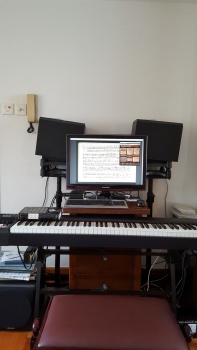Topic: Somewhat dissapointing first impression (sounds very syntesizer-like)
Hi, everybody.
I'm trying to evaluate Pianoteq 5 using a free trial I've got from the site. First of all, I must confess I'm a very much beginning [self-taught] player, I'm using a new Casio Privia PX-160 as my keyboard + ASIO4ALL ASIO driver, and in fact I don't know how REAL piano sounds Yes, there is no mistake, I believe last time I heard real piano IRL was in high school 20 years ago. Of course, I heard a lot of piano themes in recordings, be it plays on youtube or movies' themes. But that's not really the thing. That's why I would like to know opinion of those who indeed plays a lot on real acoustic piano.
My concern is that I'm greatly dissapointed with what Pianoteq offers right from the start. Without velocity curve adjusting, it sounded absolutely disgusting, like sort of syntesizer from old times, trying to emulate the real instrument. I tried to use "Calibration" feature, but it failed me repeatedly many times in a row and now doesn't work at all, despite many program's restarts I conducted (that's a really bad thing for sales when a user can't even conduct initial configuration in a trial version of software..). Then I tried to use some ready velocity presets. "Moderately slow keyboard" worked the best and sound became MUCH better.. but still I must admit I like internal sound of my Privia more - minding it's a really cheap gear it's an alarming signal for me. For me, it sounds more piano-like and natural, without strange noises and overtones I hear when playing Pianoteq.
So the question is: is this how real pianos sound, or is Pianoteq just needs A LOT more configurations before it can sound close to real one? If it's the latter, could you offer some good guides on how I can I configure it?
Later I'll try to record how the same melody sounds like in Pianoteq and in Casio's internal sound, so you could see the difference.
